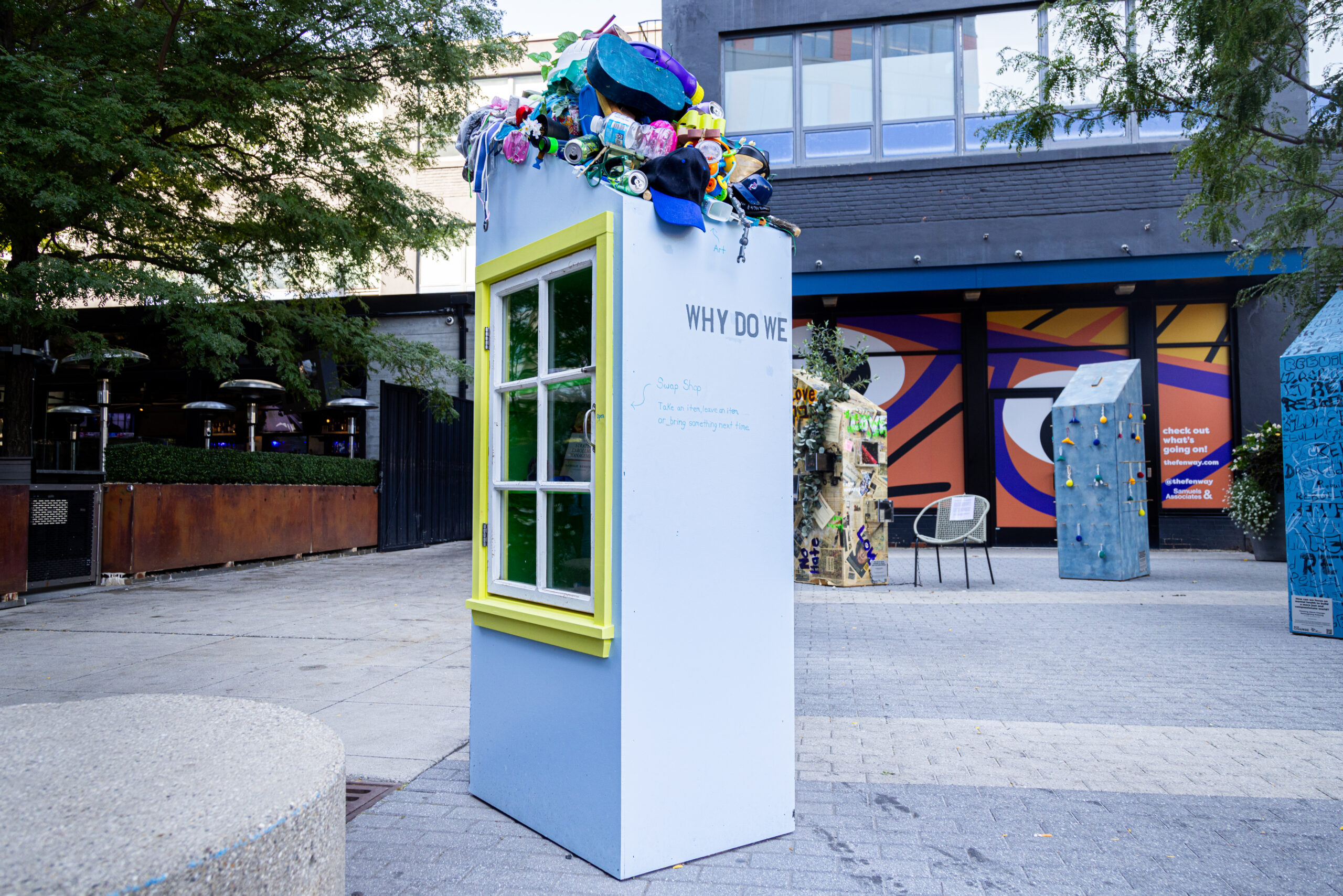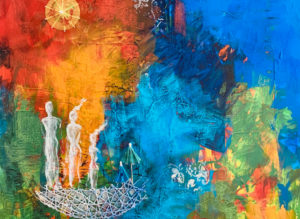Swap Shop
Why do we have so much ‘stuff’? What is the effect on the planet and environmental justice?
Published May 13, 2024

COURTESY SEVENPAIR STUDIOS
Why do we have so much ‘stuff’? What is the effect on the planet and environmental justice?
Did you know that the U.S. produces more than 12% of the planet’s trash, though it is home to only 4% of the world’s population?
Sarah Meyers Brent has always been interested in texture and material in her artwork, but it was having kids and becoming overwhelmed by the magnitude of “stuff” they require and acquire that made her focus her artwork on encouraging zero-waste practices.
I started by repurposing the “stuff” into paintings and sculptures. I have since volunteered at my town “swap shed” and am again overwhelmed by the amount of stuff the transfer station processes and the objects deposited at the shed. At the same time, I love the story behind these objects and think the textures and colors make fascinating art. I hope this sculpture will create intrigue— to make people think about small actions they make in their daily lives and connect with a larger actions that address the source of the pollution.
The “take, make, waste” model in developed countries is unsustainable creating uncertainty for future life on the planet. The resources and labor to uphold this level of consumption are outsourced to poorer countries destroying their livelihoods and ecology. Trash is hauled off to these same communities or disadvantaged ones the United States. It is amazing how consumerism touches on every cause of environmental destruction including transportation, fossil fuels, deforestation and water use.
Climate change is overwhelming and I want people to start by taking the simple action of swapping but change will ultimately come through an overhaul of the system of consumerism and through legislation keeping companies accountable for their waste.
The top of the box features a visual array of repurposed items sourced from my home and community: food waste containers, laundry jugs, toys, packaging, and clothing. They look as if they are growing out of the top of the box and starting to cascade down.
The book The Story of Stuff heavily informs this piece, and Sarah hopes to point us to some of the statistics and realities that author Annie Leonard offers:
- “Most environmental deterioration is a result of systemic failures of the capitalism that we have today, and that long-term solutions must seek transformative change in the key features of this contemporary capitalism.”
- “the fundamental problem…is not individual behavior and poor lifestyle choices, but the broken system—the deadly take-make-waste machine.”
- “As capitalism, with its incessant need for profit, developed into the dominant economic model, a culture of consumerism became necessary to support it.”
- “If plastic were a country, it would be the world’s fifth largest greenhouse gas emitter, beating out all but China, the United States, India and Russia.”
- “More than 380 million tons of plastic are currently being produced every year.”
- if all countries used resources at the rate that the United States does, we would need about 5 planets to sustain us.
- The U.S. produces more than 12% of the planet’s trash, though it is home to only 4% of the world’s population
- In the 1950s, the chairman of President Eisenhower’s Council of Economic Advisors stated, “The American economy’s ultimate purpose is to produce more consumer goods.” Really? Rather than to provide health care, safe communities, solid education for our youngsters, or a good quality of life, the main purpose of our economy is to produce Stuff?
Learn more and act: Check out MASSPIRG, an advocate for the public interest.
Sarah’s vision is live in The Fenway August 1 – October 24, 2024. Check out Sarah’s work at Chase Young Gallery located in downtown Boston.
JArts’ mission is to curate, celebrate, and build community around the diverse world of Jewish arts, culture, and creative expression. Our vision is of a more connected, engaged, and tolerant world inspired by Jewish arts and culture.
Reflections
Want more?
Get curated JewishArts.org content in your inbox


